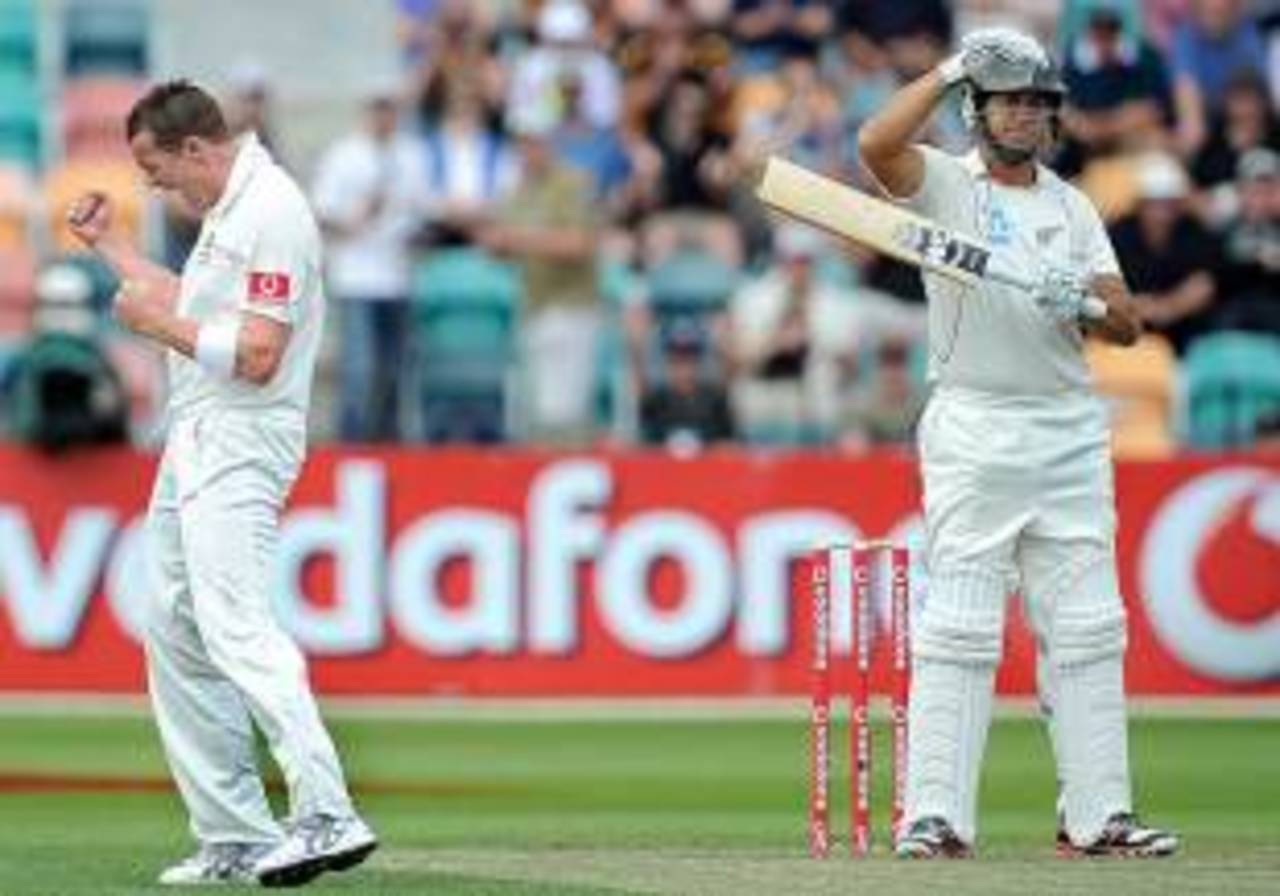MCC backs covert operations to tackle fixing
The MCC's World Cricket Committee has supported the use of covert operations as a means for the ICC's Anti-Corruption Unit (ACSU) to tackle corruption in cricket
ESPNcricinfo staff
11-Jan-2012

The MCC's World Cricket Committee has called for uniformity in the implementation of DRS • AFP
The MCC's World Cricket Committee has supported the use of covert operations, "preferably directed at somebody already suspected", by the ICC's Anti-Corruption Unit (ACSU) to tackle corruption in cricket. The committee, which met in Cape Town on January 8 and 9, also called for uniformity in the implementation of DRS - which isn't being used currently in series involving India - and lamented the postponement of the Test Championship to 2017.
The MCC is seen as the guardian of the game but its recommendations are not binding on the ICC.
The thrust of its deliberations appeared aimed at tackling corruption in the game, and it said "'mystery shopper' operations should be considered, preferably directed at somebody already suspected."
The spot-fixing scandal of 2010 was revealed by undercover reporting by the now-defunct News of the World, which pointed to then Pakistan captain Salman Butt and bowlers Mohammad Asif and Mohammad Amir having taken part in a spot-fixing plot during the tour of England.
All three were banned by the ICC and, following criminal trials in the UK, sentenced to varying lengths of detention. The MCC also tackled this issue, recommending life bans for any captain, vice-captain and coach found guilty of corruption - with the punishments at the international level also applying to domestic cricket. This, if implemented, would rule out the possibility of Butt making a comeback when his ban is over.
It did not, however, take a firm stand on the use of lie-detector tests as a means of establishing guilt. "The committee is keeping an open mind on the use of polygraphs, but for now does not recommend that their use be encouraged except as a possible route by which suspected players might attempt to exonerate themselves."
The committee also stated it is "wrong" that the DRS is not used for series involving India, and called on the ICC to make more room for Test matches in the calendar, expressing "disappointment" that 'icon' series such as England v South Africa in 2012 will comprise just three Tests and the recent series between Australia and South Africa had just two.
The committee, led by Mike Brearley, and comprising several former cricketers as well as current cricketers such as Kumar Sangakkara and Rahul Dravid, also suggested that future World Twenty20 tournaments should include 16 teams instead of the 12 decided for 2012, and said it was "uncomfortable" with the ICC's ban on the runners and "uneasy" about the abuse of the law relating to substitute fielders.